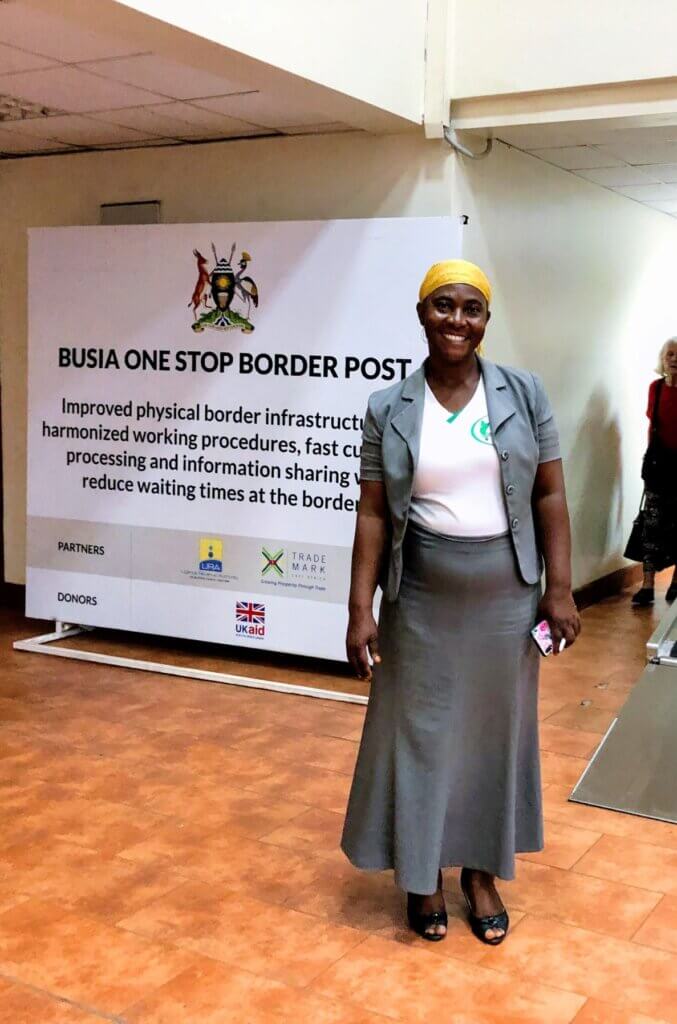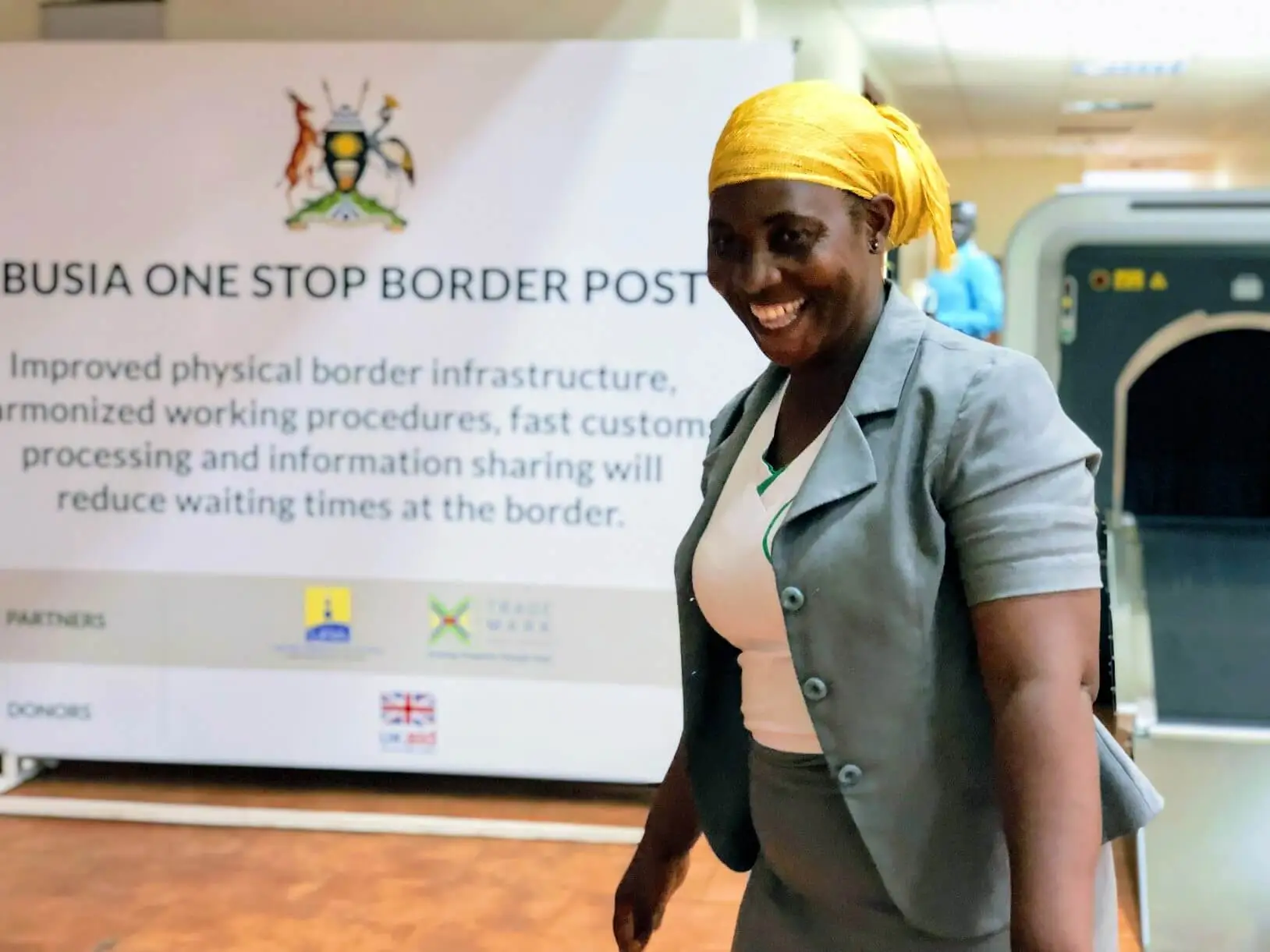Mariam Babu, 43, a mother of five and grandmother to two who sells eggs in Kenya and salt in Uganda via the Busia border town, is not the image that springs to mind when you think of a smuggler. Yet when she recalls her time bringing in products from Kenya into Uganda through abandoned bush routes in the dead of the night, around 10 years ago, that is the word she chooses to describe herself.

Today, Mariam is the chairwoman of the Women’s Cross Border Traders Cooperative Society. From her office at the Women’s Trade Desk at the Busia One-Stop Border Post (OSBP), she reflects on her decade-long transformation. The changes at the border over the past several years, she says, have not only changed the border but also changed her life. She notes the establishment of the East African Community (EAC) Common Market, the construction of the OSBP and, most importantly for her, the Simplified Trade Regime for small-scale traders, as key improvements that have facilitated trade and allowed traders like her to formalize and grow their businesses.
While the Busia border was one of the busiest in East Africa even prior to the construction of the OSBP, the Uganda side consisted of erratically placed rundown buildings, an unending line of stalled trucks, and lengthy, unclear processes to clear one’s goods into the country. Trucks with goods could take up to five days to get clearance, as many of the government agencies necessary for clearance did not have consistent presence at the border.
TMA’s multimillion-dollar investments in the OSBP’s construction, improved border IT infrastructure, and harmonization of working procedures on both the Kenyan and Ugandan sides are paying off in a big way beyond pure economics. The OSBP included construction of office buildings, roads and parking yards, cargo verification bays, a scanner shed, passenger sheds, targeting booths, a warehouse and canopies, ICT networks and hardware, furniture, and institutional support to the border agencies. The project were funded by donors XYZ.
The project has boosted trade by reducing the cost and time related to clearing goods between Kenya and Uganda, and increased volumes of transshipment cargo through the Central Corridor. It has also had a singular impact on the economic empowerment and livelihoods of women traders like Mariam.
“My life has changed because of TMA’s investment. I don’t only say that because I make more profits now. The improvements at the border have meant I don’t need to smuggle goods anymore. The threats of extortion and sextortion in the bush, dangerous routes with cunning agents, the stress of getting caught by the police and having your livelihood taken away are all behind me now. My life is calmer, my family is healthier because of this modern border post now.”
Mariam recalls her lowest point as a smuggler. In 2009, she lost her brother and had to transport his body from Kenya to Uganda for a burial ceremony at their birth village. Using the bush routes they were accustomed to, the group she was traveling with was intercepted by Ugandan police. After hours of harassment and threats they were ordered to open the coffin so as to confirm that it was indeed carrying the remains of his brother and not contraband goods.
The indignity of having her brother’s remains mis-handled like that was a turning point for Mariam. Going forward, she decided, she would use the gazetted route despite its then cumbersome and hostile condition. Gratefully for Mariam and other small-scale traders like her, the series of TMA-supported improvements noted above were underway.
So, what has been the significance of the changes to small cross border traders like Mariam? The Simplified Trade Regimeallows fast-tracking of customs clearance for consignments worth below $2,000 USD – the range traders like Mariam typically trade in. The EAC Common Market allows goods produced in member states to be be exported to other member states with a zero-rated import tariff. Pertinently, the OSBP has made border crossings significantly faster for traders of all sizes. Cargo trucks that used to take four to five days to clear, now take on average just three hours. Faster clearance translates into significant time and cost savings for all traders.
At the OSBP, Mariam also notes that TMA-led trainings for traders and border agency staff have improved their personal capacity and has had positive multiplier effects, like the establishment of the women’s trade desk and the weekly joint border stakeholder meetings where traders voice their concerns and receive updates from border officials.
“With the great improvements for women traders like me, it is easy to forget how dark and challenging things used to be. TMA’s work on many fronts has made it so easy for us small-scale traders to grow our businesses and support our families. So many people appreciate how quick and painless it is now to trade through the Busia border. “When I say the OSBP changed my life for good, I really mean it” says Mariam as she signs out.


